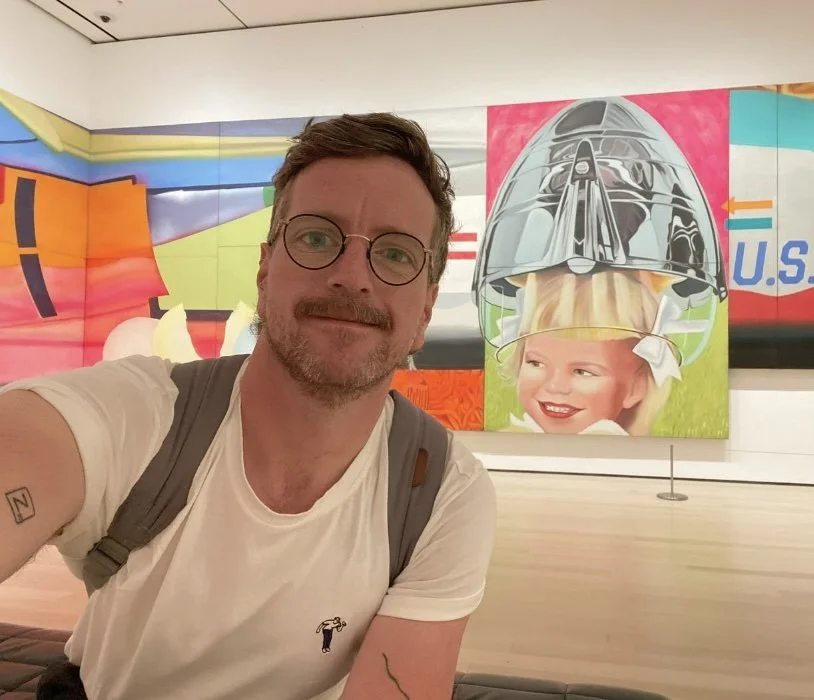thinking about language, place and identity
… whatever those are
For as long as I can remember, I’ve cared a lot about language. Like … in a kind of intense way. An “I spent my childhood re-reading encyclopaedia entries about each letter of the alphabet” kind of way. A “cares way too much about winning scrabble” way.
And nowadays, I’m especially interested in language as a social, embodied practice – taking shape in spoken, signed, and written forms, alongside anything and everything that gets placed or takes place beside it, like images, symbols, colour, shape, and gesture. I’m interested in how language (or broadly, ‘semiosis’) affects and transforms (or ‘mediates’) people’s relationships with themselves, each other, and the world beyond.
My research is critical and queer, my definition of ‘language’ is very fuzzy (i.e. multimodal), and I think a lot about how human beings ‘scale’ differences of experience, of geography and history, between bodies, and across binaries of (for example) nation, class, ability, gender, sexuality and race.
The above (not to mention the complex, problematic history of linguistics as a discipline) makes me a bit skeptical about labels, but ultimately, I call myself a sociolinguist (but ‘discourse analyst’, ‘sociocultural linguist’, ‘linguistic anthropologist’, ‘social semiotician’, and/or ‘huge nerd’ also work).
For more details about my scholarly publications, research interests, methods and academic background, go here.
My interests lie at the intersection of discourses – and ideologies – of place, politics, media and personhood, especially at global scale:
how worldviews of ‘worldliness’ and international togetherness (what some call globalisation and others might call cosmopolitanism) emerge sociolinguistically in text, talk, landscapes and other communicative practice; and
how these worldviews intersect with people’s desires – how they seek to be in the world – and who they claim to be; and
how these worldviews intersect with power – especially, how powerful (and not so powerful) institutions (e.g. nation-states, businesses, and NGOs) use language strategically in mass- and digital media; and
how these worldviews intersect with people’s mobility in the world – if they can move much at all – and the forces compelling them to move; and
how the above intersects with the material world – the materiality of ‘things’ we create, covet or consume, as well as the complex cultural politics and raw political economy of borders, wealth, commodities, and social inequality – how people find and create spaces to breathe, spread joy, work, and succeed (among other things).
If that’s all a bit dense and wordy (go figure) … well … let’s just say I’m really interested in what you think language is made of, and what it makes the world into. What is language for, what makes it meaningful, when does it belong to you? When it’s used, what does it do?
Currently, these interests have me thinking a lot about passports, thanks to a Postdoc.Mobility fellowship from the Swiss National Science Foundation.
- - - -
I have a PhD in English Linguistics (Language and Communication) from the University of Bern, Switzerland – but my first and forever home is Naarm/Melbourne, Australia.
I’m currently an associated researcher at the Centre for the Study of Language and Society in Bern, and visiting research scholar at the CUNY Graduate Center in New York City, and University of Limerick, Ireland.
Lately, I spend most of my time in Brooklyn, NY. There and elsewhere, I take lots of photos of walls, love a trivia night, and always, always, always have too many tabs open.
(I’m also a long-suffering fan of the St Kilda Football Club, as you can see here if you look closely)


